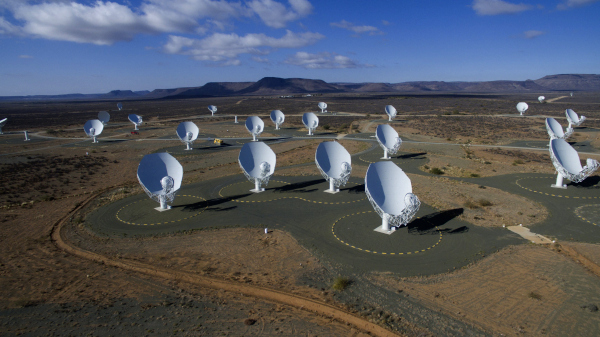NEW DELHI: The Square Kilometre Array (SKA) programme, an international initiative building the world’s largest radio telescope will have control systems designed and built by an Indian IT multinational firm — Tata Consultancy Services (TCS) — while multiple Indian scientific institutions are also contributing to the project.
The National Centre for Radio Astrophysics (NCRA) of the Tata Institute of Fundamental Research (TIFR) is the lead Telescope Manager (TM) of the project, while other institutes like Raman Research Institute (RRI) and the Indian Institute of Astrophysics (IIA) in Bengaluru, Inter-University Centre for Astronomy and Astrophysics (IUCAA) in Pune, multiple IITs, among other Indian institutes are scientific partners.
On September 16, SKA Organisation announced that it has passed all its final reviews paving way for the start of construction. “In recent months a series of independent external panels have examined the detailed design, costing, future operations plan and business support functions of the SKA, to ensure its overall readiness to move from planning to construction,” the SKA said.
Funded by 15 member countries, including India and China, SKA, which will have an approximately one square kilometer collecting area, will feature two sets of instruments — in Australia and South Africa — and will be run from the project headquarters in the UK.
NCRA-TIFR, which is leading the consortium in developing the telescope’s central nervous system – control systems that will power it — collaborated with TCS and a consortium of global agencies to set up the SKA, TCS said.
Regu Ayyaswamy, TCS Global Head- IoT & Engineering and Industrial Services told TOI: “…The scale of SKA represents a huge leap forward in science, engineering and technology. TCS has been collaborating with the National Centre for Radio Astrophysics on the SKA programme since 2013. It is exciting to work with the global scientific community, on building the world’s largest scientific facility.”
Having designed the control systems architecture for the international thermonuclear experimental reactor (ITER), a TCS Research and Innovation (R&I) team partnered with NCRA-TIFR to create a control systems solution for SKA. The R&I team has been assisted by the TCS Engineering and Industrial Services (EIS) team.
TCS was mandated to minimise the lifecycle costs associated with the continual technological development, testing, and validation that would occur over the telescope’s working life (roughly, 50-odd years).
SKA is a highly complex instrument made up of thousands of receivers that capture and process signals in different observational modes, churning out petabytes of data. For large systems, it is still extremely challenging to achieve accuracy and consistency in capturing the interactions of every component.
“We addressed these challenges in a two-fold manner: First, we developed a domain- specific language for specifying control systems logic. Then, designed a complete environment for engineering solutions that would significantly automate lifecycle, including modelling, code generation, knowledge-driven simulation, and verification,” TCS said.
In addition to the management system that runs the telescope, TCS also defined a standard control interface between SKA and its subsystems, each of which is diverse in its functionality. This work has led to the adoption of a common project-wide control platform, standard design patterns, and a consistent control systems architecture by the telescope consortium.
Source: ToI
You may also like
-
Dot Simplifies Approval Processes For Telecom Licenses And Wireless Equipment
-
PM to Inaugurate SEMICON India 2024 on 11th September
-
Shri Piyush Goyal Sets 500 Million Tonnes Domestic Steel Production Target by 2034
-
NHAI to Track Around 100 Toll Plazas with GIS-Based Software for Seamless Movement of Traffic at National Highways
-
“Marching Towards Building A Digitally Connected Bharat and An Atmanirbhar Telecom Sector”: Union Minister Jyotiraditya Scindia
